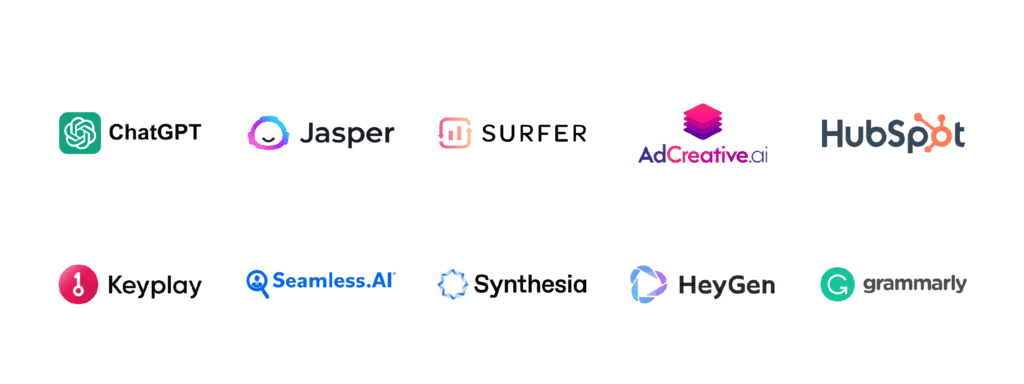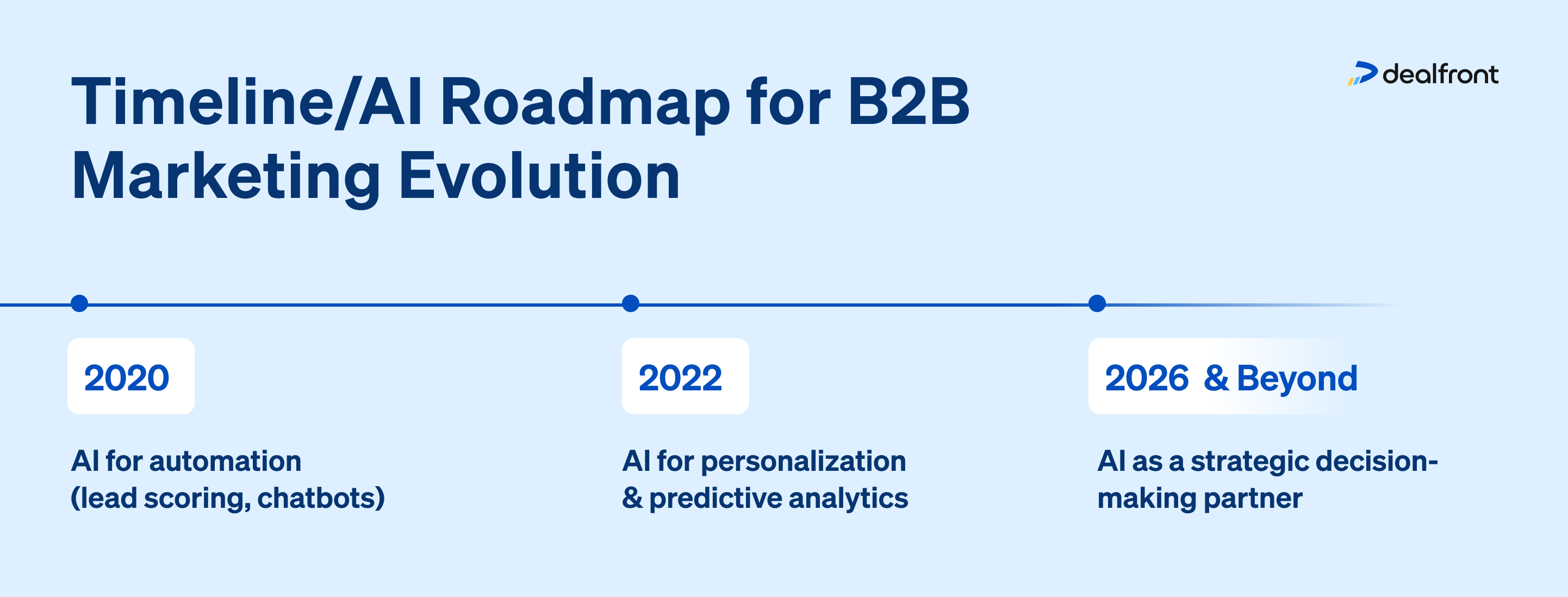Open Performance and Development With AI Automation for B2B Firms
AI automation is transforming the landscape for B2B firms. It minimizes and streamlines procedures reliance on human intervention. This shift permits services to make quicker, data-driven decisions. As organizations check out which refines to automate, they have to also consider the right devices to apply. Difficulties stay in adopting AI innovation. The ramifications of these modifications might form the future of several companies in means yet to be fully comprehended
Understanding AI Automation in the B2B Context
As businesses progressively seek performance, comprehending AI automation in the B2B context becomes necessary. AI automation entails utilizing innovative innovations to improve procedures, decrease human intervention, and boost decision-making processes. In the B2B landscape, this can show up in different kinds, such as automating client service interactions, handling supply chain logistics, or maximizing advertising and marketing campaigns. Business can utilize AI to assess large datasets promptly, enabling them to recognize fads and insights that educate tactical selections. AI systems can integrate seamlessly with existing modern technologies, giving a cohesive system for handling business features. This understanding prepares for companies to explore exactly how AI can change their procedures, improve performance, and ultimately foster lasting development in an affordable market.
Key Benefits of Carrying Out AI Automation

Identifying Procedures Ideal for Automation

Selecting the Right AI Equipment for Your Business
When B2B business take into consideration automating their processes, choosing the appropriate AI tools ends up being essential for achieving preferred end results. Companies ought to start by reviewing their distinct requirements and purposes, ensuring alignment with service objectives (Minarik AI). Evaluating the combination, scalability, and adaptability capacities of potential tools is critical, as these elements establish long-term effectiveness. Organizations must additionally consider user-friendliness and the level of assistance supplied by suppliers, as these elements can affect effective execution. Additionally, evaluating client evaluations and study can provide insights into exactly how specific AI options execute in real-world circumstances. By meticulously choosing AI tools that fit their operational demands, B2B business can improve effectiveness and drive growth while decreasing possible disturbances
Getting Over Challenges in AI Fostering
B2B firms often experience considerable challenges in adopting AI technologies, particularly issues related to data high quality and resistance to alter administration. Poor data quality can prevent the performance of AI systems, while worker hesitation to welcome new processes can stall execution initiatives - Growth Systems For B2B. Resolving these difficulties is necessary for effective AI integration and maximizing its possible advantages
Information Quality Issues
Ensuring high data high quality is essential for the effective fostering of AI technologies in business-to-business environments. Incorrect, incomplete, or outdated information can severely impede AI efforts, leading to wrong understandings and poor decision-making. Companies typically face challenges such as information silos, disparities across various resources, and a lack of standard data layouts. To get over these problems, companies need to purchase data cleansing, assimilation, and governance procedures. Applying robust data monitoring practices guarantees that the info fed into AI systems is appropriate and trustworthy. Additionally, cultivating a society of data high quality understanding amongst staff members can improve data precision with time. By attending to data high quality issues, B2B companies can release the full possibility of AI automation, driving efficiency and development.
Change Monitoring Resistance

Measuring the Impact of AI Automation
Measuring the impact of AI automation in B2B firms calls for a clear understanding of key efficiency indicators (KPIs) that line up with company objectives. Efficient data evaluation strategies are crucial for analyzing the outcomes, while robust ROI analysis strategies help establish the economic advantages of automation efforts. Together, these components offer an extensive structure for assessing AI's payments to business success.
Key Performance Indicators
Trick performance signs (KPIs) work as important devices for B2B firms to examine the efficiency of AI automation initiatives. By establishing clear metrics, organizations can measure improvements in operational efficiency, expense decrease, and earnings development directly attributable to automation. Common KPIs include cycle time decrease, mistake rates, consumer contentment ratings, and staff member performance levels. These signs provide understandings into just how AI systems are maximizing procedures and boosting general performance. Furthermore, tracking KPIs enables companies to identify areas for further enhancement and to line up AI automation initiatives with calculated service purposes. Inevitably, a distinct structure of KPIs guarantees that B2B business can quantitatively review the influence of AI automation on their operations and drive continual development.
Information Evaluation Methods
Effective data evaluation strategies play a vital duty in evaluating the influence of AI automation within B2B companies. By making use of statistical methods, organizations can identify patterns and patterns in operational information, allowing them to examine the efficiency acquires attained via automation. Methods such as regression evaluation and time collection forecasting supply insights into exactly how AI-driven processes affect performance and decision-making. Furthermore, information visualization tools can effectively connect searchings for to stakeholders, helping with notified strategic choices. Artificial intelligence algorithms can better enhance analysis by anticipating future outcomes based on historic information, offering workable understandings. Eventually, these methods make it possible for B2B companies to determine success and maximize their AI automation initiatives, making sure placement with business goals and enhancing general efficiency.
ROI Evaluation Techniques
Reviewing the roi (ROI) of AI automation is essential for B2B business seeking to recognize the monetary effects of their technical efforts. Business can employ various ROI assessment strategies to gauge the effectiveness of AI executions - Growth Systems For B2B. One effective approach includes calculating expense savings by comparing functional costs prior to and after automation (AI Automation For B2B). Furthermore, determining performance renovations via crucial efficiency signs (KPIs) assists measure the benefits of AI. Client complete satisfaction metrics can also offer understandings into the influence of automation on solution high quality. To guarantee an extensive assessment, business must take into consideration both straight monetary returns and intangible advantages, such as enhanced decision-making abilities and affordable benefit. This diverse assessment allows B2B firms to make educated choices concerning future financial investments in AI modern technology
Future Patterns in AI Automation for B2B Firms
What technologies lie ahead for AI automation in B2B companies? Arising trends show a significant shift in the direction of improved information analytics capacities, enabling organizations to make even more informed decisions. Anticipating analytics will end up being progressively vital, permitting companies to anticipate market adjustments and consumer requirements. In addition, the assimilation of AI with Web of Things (IoT) innovation is expected to streamline procedures by giving real-time understandings and automation of procedures. Firms will certainly also concentrate on improving consumer experiences with personalized advertising driven by AI formulas. Furthermore, improvements in natural language processing have a peek at this site will assist in better interaction in between services and clients. As these fads progress, B2B business have to adjust to leverage AI automation properly, making certain sustained growth and affordable benefit.
Often Asked Inquiries
What Industries Advantage one of the most From AI Automation in B2B?
Manufacturing, financing, healthcare, and logistics markets profit one of the most from AI automation in B2B. These fields leverage AI to maximize processes, improve decision-making, and enhance overall operational efficiency, driving substantial development and development.
Exactly How Does AI Automation Effect Staff Member Duties and Responsibilities?
AI automation reshapes worker roles and obligations by simplifying repeated jobs, enabling workers to concentrate on tactical campaigns. This shift fosters skill development, enhances productivity, and encourages partnership, inevitably driving organizational development and innovation.
What Prevail Mistaken Beliefs Concerning AI Automation in B2B?
Common mistaken beliefs regarding AI automation in B2B include anxieties of work loss, ideas that AI can fully replace human judgment, and ignoring the value of partnership in between AI systems and workers for suitable results.
Just How Can Businesses Make Certain Information Personal Privacy With AI Automation?
Companies can guarantee information personal privacy with AI automation by executing durable file encryption methods, adhering to governing compliance, conducting normal audits, and training staff members on information taking care of techniques to mitigate dangers and protect sensitive information.
What Are the Expenses Connected With Applying AI Automation?
The prices connected with carrying out AI automation consist of software acquisition, framework upgrades, training employees, ongoing maintenance, and prospective downtime throughout assimilation. Furthermore, firms might sustain expenditures connected to data protection and conformity steps.
Measuring the effect of AI automation in B2B firms requires a clear understanding of vital performance indicators (KPIs) that align with business goals. Trick performance indicators (KPIs) offer as necessary devices for B2B firms to assess the performance of AI automation campaigns. Efficient information evaluation strategies play an essential function in reviewing the effect of AI automation within B2B companies. Reviewing the return on investment (ROI) of AI automation is important for B2B business looking for to comprehend the monetary implications of their technological initiatives. What developments exist in advance for AI automation in B2B firms?